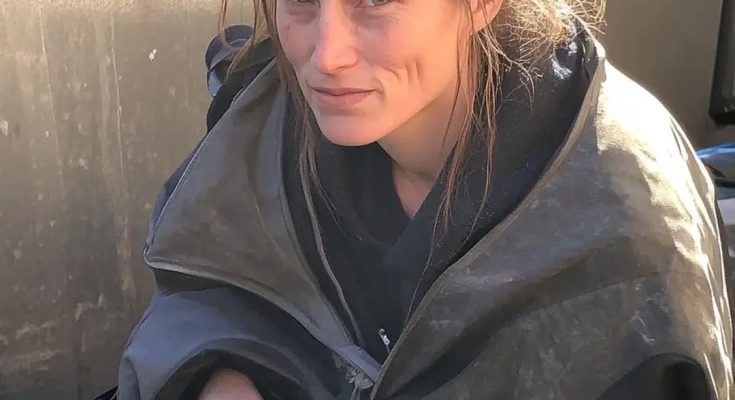One evening, while driving home, I saw a woman hunched over a trash can, her thin frame a testament to the hardships she endured. There was something about her that pulled me in, so I slowed down and rolled down the window. She looked up, startled, with eyes that spoke of weariness and defiance.
“Need some help?” I asked, surprising myself. It wasn’t like me to approach strangers.
“You offering?” she replied, her voice both sharp and tired, as if she’d heard too many empty promises before.
“I guess I am,” I responded awkwardly. “It just doesn’t seem right, seeing you here like this.”
She studied me, clearly skeptical. “Life isn’t fair,” she muttered. “Especially when cheating husbands are involved. But you wouldn’t know much about that.”
Her words hit me, but I kept going. “Do you have somewhere to stay tonight?” I asked.
She hesitated before answering. “No.”
That was all I needed to hear. “I have a garage,” I offered. “It’s more like a guest house. You could stay there until you get back on your feet.”
I expected her to reject my offer, but she simply said, “Just for a night. I’m Lexi.”
The drive back was silent, Lexi wrapping her arms around herself like a shield. When we reached the guest house, I showed her inside. “It’s not much, but it’s warm,” I said. “There’s food in the fridge, too.”
“Thanks,” she mumbled.
Over the following days, Lexi and I crossed paths occasionally, sharing brief conversations and meals. I couldn’t quite pinpoint why, but I felt drawn to her. Perhaps it was the loneliness in her eyes that mirrored my own or her sheer determination to keep going despite life’s brutal blows.
One night, over dinner, she opened up. “I was an artist once,” she revealed. “Had a gallery, a few shows… but then it all fell apart.”
“What happened?” I asked, genuinely curious.
“My husband left me for someone younger. I lost everything after that,” she explained with a bitter laugh.
“I’m sorry,” I said, but I knew words weren’t enough.
As time passed, Lexi’s presence became a welcome change in my otherwise empty life. She had a biting wit that cut through my loneliness, and for the first time in years, I felt less alone. But then, everything changed.
One afternoon, I rushed into the garage without knocking. What I found shocked me: dozens of paintings, all of me—distorted and grotesque. In one, I had chains around my neck; in another, blood dripped from my eyes. The images were disturbing, a reflection of someone else’s torment cast onto me.
That night, I confronted her. “What are those paintings?” I demanded, trying to keep my voice steady.
Her face turned pale. “You weren’t supposed to see those,” she said, her voice shaking.
“So that’s how you see me?” I asked, hurt.
“No,” she insisted, tears welling up. “I was just angry. I needed to let it out.”
I wanted to understand, but I couldn’t. “I think it’s best if you leave,” I said quietly.
The next morning, I drove her to a shelter, handing her some money as she stepped out of the car. She accepted it with trembling hands, and we parted ways.
Weeks passed, but I couldn’t forget her or the unexpected connection we’d shared. Then, one day, a package arrived. Inside was a painting—this time, a serene and peaceful portrait of me. Along with it was a note from Lexi, with her phone number at the bottom.
I hesitated but eventually called. “Lexi, it’s me. The painting… it’s beautiful.”
“Thank you,” she replied, her voice soft. “I wanted to give you something better than those other ones.”
“You didn’t owe me anything,” I said sincerely.
“You had every right to be angry,” she admitted. “The paintings were never really about you. I’m sorry.”
“I forgave you the moment I saw the new one,” I confessed. “Maybe we could start over?”
Lexi agreed, and we made plans to meet for dinner. She told me she had found a job and was saving up for an apartment. I couldn’t help but smile, feeling a sense of hope I hadn’t felt in years.



